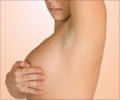Adding anti-malaria drug to conventional breast cancer inhibitors can dramatically increase the rate by which the treatment kills cancer cells
Adding anti-malaria drug to conventional breast cancer inhibitors can dramatically increase the rate by which the treatment kills cancer cells, anew study led by Indian-origin researchers has shown.
While they are powerful killers of some breast cancer cells, new drugs called histone deacetylase inhibitors, or HDAC inhibitors, also increase self-digestion, or autophagy, in surviving, mega-stressed cells."To meet the energy demands of growth and survival, cancer cells start eating up their own organelles, so that surviving cells become dependent on this autophagy," said Dr. Kapil Bhalla, director of the Medical College of Georgia Cancer Centre.
"By also using autophagy inhibitors, we pull the rug out from under them. The only way out is death," he added.
The research team led by Bhalla and Dr Rekha Rao, first author of the study showed the potent HDAC inhibitor panobinostat's impact on autophagy in human breast cancer cells in culture as well as those growing in the mammary fat pads of mice.
When they added the anti-malaria drug chloroquine, which inhibits autophagy, breast cancer kill rates increased dramatically.
"As breast cancer is growing, it's developing these mechanisms of resistance to death," said Bhalla.
Advertisement
He said that chloroquine, a known anti-malarial and inhibitor of autophagy, already is being paired with chemotherapy and radiation is some cancer clinical trials.
Advertisement
Source-ANI
RAS














